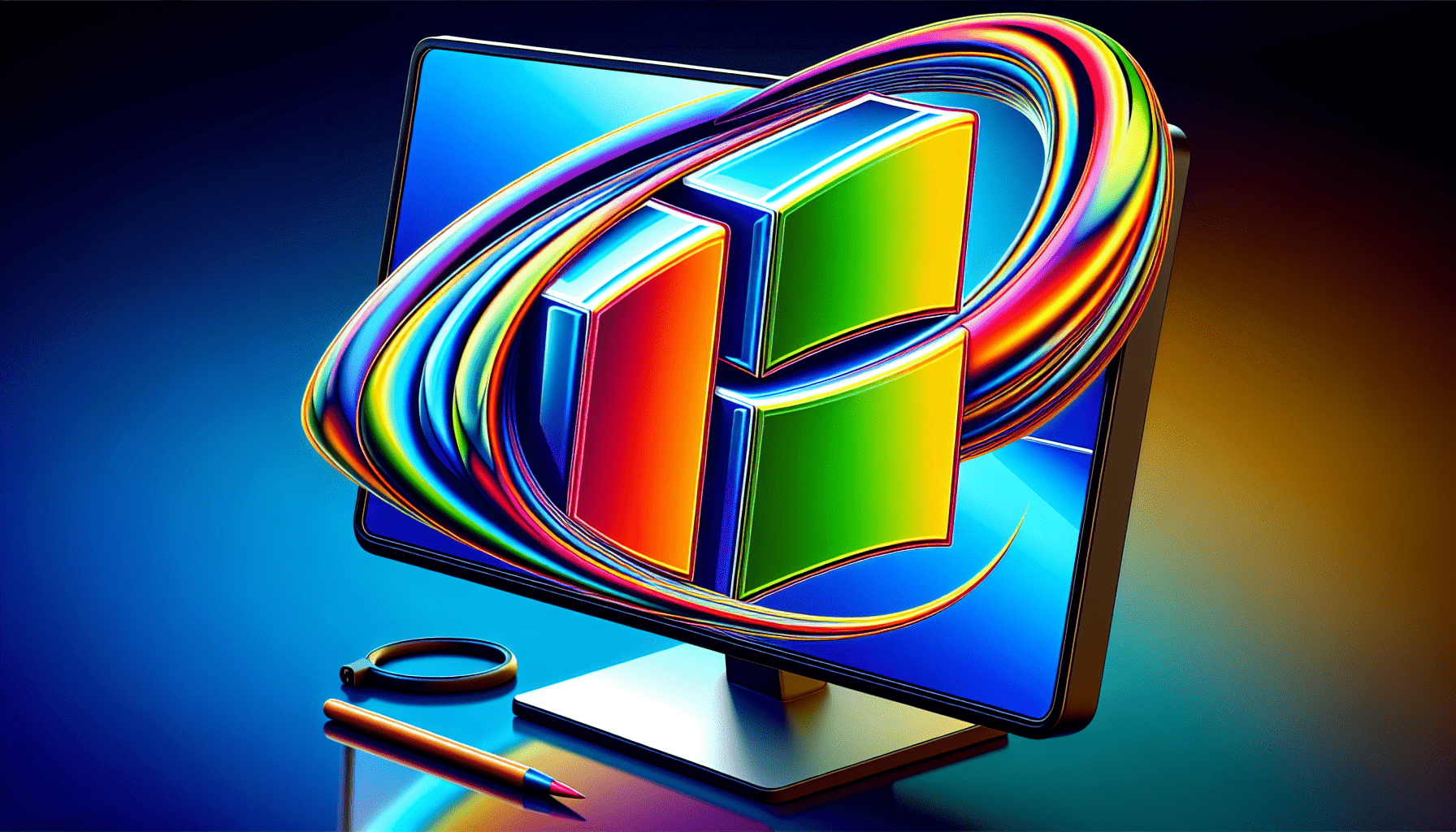







Are you in need of a reliable and affordable device for basic home and student use? Look no further than the Chromebook. With its user-friendly interface and seamless integration with Google’s suite of productivity tools, the Chromebook is an excellent choice for those seeking simplicity and functionality. Whether you’re browsing the web, editing documents, or streaming content, this lightweight laptop offers a hassle-free experience that is perfect for everyday tasks. In this article, we will explore the benefits and limitations of using a Chromebook for basic home and student use, helping you make an informed decision.

Understanding What a Chromebook Is
Definition of a Chromebook
A Chromebook is a type of computer that runs on Google’s Chrome OS operating system. It is designed to primarily work with web applications and rely heavily on internet connectivity. Chromebooks are often lightweight and portable, making them convenient for everyday tasks and on-the-go use.
Different Brands of Chromebooks
There are several brands that manufacture Chromebooks, including Google, Acer, HP, Lenovo, and Asus, among others. Each brand offers its own range of models with varying specifications and features. This variety allows users to choose a Chromebook that suits their specific needs and preferences.
Comparison with Traditional Laptops
Compared to traditional laptops, Chromebooks have some distinct differences. While laptops typically run on operating systems such as Windows or macOS, Chromebooks use Google’s Chrome OS. Chromebooks tend to be more affordable, thanks to their simpler hardware and dependence on cloud-based storage. They also offer fast startup times and long battery life. However, they may have limited offline functionality and fewer software options compared to traditional laptops.
Operating System of a Chromebook
Google’s Chrome OS Explained
Chrome OS is a lightweight operating system developed by Google. It is based on the Linux kernel and designed to provide a simple and secure computing experience. Chrome OS focuses on web-based applications and relies heavily on Google’s suite of productivity tools, such as Google Docs, Sheets, and Slides.
Differences between Chrome OS and Windows/Mac
One of the main differences between Chrome OS and Windows or macOS is the level of complexity and functionality. Chrome OS is designed to be lightweight and user-friendly, with a simplified interface and intuitive navigation. It places greater emphasis on web applications and cloud storage, while Windows and macOS offer a wider range of software options and offline functionality.
Hardware and Performance Features of Chromebooks
Chromebook Processing Power
Chromebooks typically feature low-power processors, such as Intel Celeron or MediaTek CPUs. These processors are sufficient for handling web-based applications and everyday tasks like browsing, streaming, and document editing. While they may not match the performance of high-end processors found in traditional laptops, they provide a smooth experience for most basic computing needs.
Storage Capacity of Chromebooks
Chromebooks often come with limited built-in storage, usually 16GB or 32GB, as they rely heavily on cloud-based storage solutions. However, they often offer additional storage through Google Drive, allowing users to store files, photos, and documents in the cloud. This cloud-centric approach ensures that users can access their files from any device with internet connectivity.
Screen Size and Resolution Options
Chromebooks come in a variety of screen sizes, typically ranging from 11 to 15 inches. The resolution varies as well, with some entry-level models featuring 1366×768 resolution and higher-end models offering full HD or even 4K resolution. Users can choose a size and resolution that best suits their preferences and intended use, whether it be for productivity or multimedia consumption.
Battery Life
One significant advantage of most Chromebooks is their impressive battery life. Due to their simplified operating system and energy-efficient hardware, Chromebooks can often last for an entire day of normal use on a single charge. This longevity makes them ideal for students, travelers, or anyone who needs a portable device that can keep up with their busy schedule.
Software and Applications on Chromebook
Google Suite Applications
Chromebooks come preloaded with a range of Google’s suite of productivity tools, collectively known as Google Suite. This includes popular applications like Google Docs, Sheets, and Slides, which offer extensive functionality for creating and editing documents, spreadsheets, and presentations. These Google applications are similar to Microsoft Office and can be accessed both online and offline.
App Availability and Limitations
While Chrome OS supports a wide array of web applications, it does have some limitations when it comes to traditional desktop applications. Chromebooks cannot run programs designed for Windows or macOS directly. However, many applications have online or web-based counterparts that can be accessed through the Chrome browser. Additionally, some Chromebooks now support Linux applications, expanding the range of software options available.
Possibility of Installing Other Desktop Applications
Chromebooks have traditionally been more limited in terms of running traditional desktop applications compared to Windows or macOS. However, Google has made efforts to provide more flexibility in recent years. Some Chromebooks now support the installation of Android applications from the Google Play Store, providing access to a wider range of applications. Additionally, select models have started supporting Linux applications, allowing users to run software traditionally associated with desktop operating systems.

Internet Dependency of Chromebooks
Internet Connection Requirements for Chromebooks
Chromebooks heavily rely on internet connectivity to access web applications, sync files with the cloud, and perform software updates. While some Chromebook applications have offline functionality, many of their features require an active internet connection. Therefore, it is important to have a reliable and consistent internet connection for seamless use of a Chromebook.
Offline Functionality of Chromebooks
Although internet connectivity is essential for the majority of Chromebook tasks, Chrome OS does offer offline functionality for select applications. Google Docs, Sheets, and Slides, for example, allow users to create and edit files offline, with changes automatically syncing when an internet connection is established. However, it is worth noting that offline functionality is limited compared to full-featured offline desktop applications.
How Chromebooks Handle Software and Document Storage in the Cloud
Chromebooks prioritize cloud storage for documents, photos, and files. Google Drive, for instance, is integrated into Chrome OS, allowing seamless syncing and access to files across devices. This cloud-centric approach means that documents and files are stored securely online, reducing the risk of data loss due to hardware failure. Additionally, it enables collaboration and file sharing with ease, which is particularly beneficial for students and those working on group projects.
Security Features of Chromebooks
Built-in Security of Chrome OS
Security is a top priority for Chrome OS, and Google has implemented several features to ensure users’ safety. Chromebooks have a built-in security chip called the Trusted Platform Module (TPM), which encrypts data and verifies the integrity of the system during the boot process. Additionally, Chrome OS utilizes sandboxing techniques to isolate different processes, reducing the risk of malware or viruses spreading across the system.
Automatic Software Updates
One significant advantage of Chromebooks is their automatic software updates. Google regularly releases updates to Chrome OS, which are downloaded and installed seamlessly in the background. These updates not only introduce new features and improvements but also include security patches and bug fixes. Users can rest assured knowing that their Chromebooks are always up to date with the latest enhancements and protections.
Data Protection and Privacy
Chrome OS emphasizes data protection and privacy, with various features in place to safeguard user information. Chromebooks have built-in virus protection that scans files and blocks potentially harmful content. Additionally, Chrome OS offers multiple user accounts, allowing each user to have their own profile and data separation. Users also have control over privacy settings, choosing what information is shared with Google and other applications.

Affordability and Value of Chromebooks
Cost Comparison with Traditional Laptops
One of the significant benefits of Chromebooks is their affordability compared to traditional laptops. Chromebooks often have lower price points due to their simpler hardware and lightweight operating system. This makes them an attractive option for budget-conscious users, such as students or individuals looking for a secondary device.
Value for Money Assessment
While Chromebooks may have lower price tags, their value for money depends on individual needs and use cases. For those primarily using web applications and relying on cloud storage, a Chromebook can offer excellent value with its fast performance, long battery life, and seamless integration with Google’s suite of productivity tools. However, users requiring offline functionality or extensive software compatibility may find a traditional laptop to be a better investment.
Availability and Cost of Chromebook Accessories
Chromebooks have a range of accessories available to enhance their functionality and usability. These include external keyboards, mice, styluses, and external storage devices. The availability and cost of these accessories generally depend on the specific model of Chromebook. However, compared to traditional laptops, Chromebook accessories are often more affordable and readily available due to the standardized design and connectivity options.
Chromebooks for Student Use
Benefits of Chromebooks for Students
Chromebooks have gained popularity in educational settings due to their affordability, simplicity, and integration with Google’s suite of productivity tools. They are often used by students for tasks such as taking notes, writing papers, and collaborating on group projects. Chromebooks’ lightweight design and long battery life make them portable and suitable for use both in the classroom and at home.
Limitations of Chromebooks in Academic Settings
While Chromebooks are suitable for many academic tasks, they do have limitations. Some specialized software, such as video editing or engineering applications, may not be compatible with Chrome OS. Additionally, offline functionality may be limited for certain Chromebook applications, requiring a constant internet connection for optimal use. However, many educational institutions provide solutions or workarounds to address these limitations and maximize the potential of Chromebooks in the classroom.
How Schools are Incorporating Chromebooks
Many schools and educational institutions have embraced Chromebooks as a cost-effective and efficient tool for both students and teachers. Chromebooks are often used for online learning platforms, digital assessments, and collaborative projects. They offer streamlined access to educational resources and provide a consistent and standardized platform for academic activities. As a result, Chromebooks have become a popular choice for educational institutions at all levels.
Chromebooks for Home Use
Using Chromebooks for Home Tasks
Chromebooks are suitable for a variety of home tasks, including web browsing, email, streaming multimedia content, social media, and basic productivity applications. They offer a user-friendly and fast experience, with a simplified interface that is intuitive for users of all ages. Chromebooks can be a practical choice for individuals looking for a device primarily focused on internet-based activities.
Gaming on a Chromebook
Although Chromebooks are not typically known for their gaming capabilities, they do offer access to a growing number of web-based and Android games. Many popular mobile games are available through the Google Play Store, providing entertainment options for casual gamers. Additionally, some Chromebooks support cloud gaming services, allowing users to stream games from platforms like Stadia.
Streaming and Multimedia Use on Chromebook
Chromebooks are well-suited for streaming and multimedia consumption. With their long battery life, lightweight design, and high-resolution displays, they provide an enjoyable experience for watching movies, TV shows, and online videos. Chrome OS supports popular streaming services like Netflix, YouTube, and Spotify, giving users access to a wide range of entertainment options.
Making the Decision: Is a Chromebook Right for You?
Comparing Personal Needs and Chromebook Features
To determine if a Chromebook is the right choice, it is essential to consider your specific needs and preferences. If you primarily use web-based applications, rely on cloud storage, and have a consistent internet connection, a Chromebook can be a suitable option. However, if you require extensive offline functionality, specialized software, or compatibility with Windows/macOS applications, a traditional laptop may be a better fit.
Choosing between a Chromebook and Traditional Laptop
When deciding between a Chromebook and a traditional laptop, it is crucial to evaluate the trade-offs. Chromebooks offer affordability, simplicity, and excellent battery life, making them ideal for web-based tasks and basic productivity. Traditional laptops, on the other hand, provide more software options, offline functionality, and compatibility with a broader range of hardware and peripheral devices.
Best Chromebook Models for Home or Student Use
The best Chromebook model for home or student use depends on specific requirements and preferences. Some popular options, known for their quality and performance, include the Google Pixelbook, Acer Chromebook 14, HP Chromebook x360, Lenovo Yoga Chromebook, and Asus Chromebook Flip C434. These models offer a range of features and specifications to cater to different user needs.
In conclusion, Chromebooks provide an affordable, user-friendly, and secure computing option for home and student use. They excel in web-based tasks, offer long battery life, and integrate seamlessly with Google’s suite of productivity tools. However, they may have limitations in terms of offline functionality, software compatibility, and specialized applications. By carefully considering individual needs and evaluating the features and trade-offs, users can make an informed decision on whether a Chromebook is the right choice for their computing needs.



